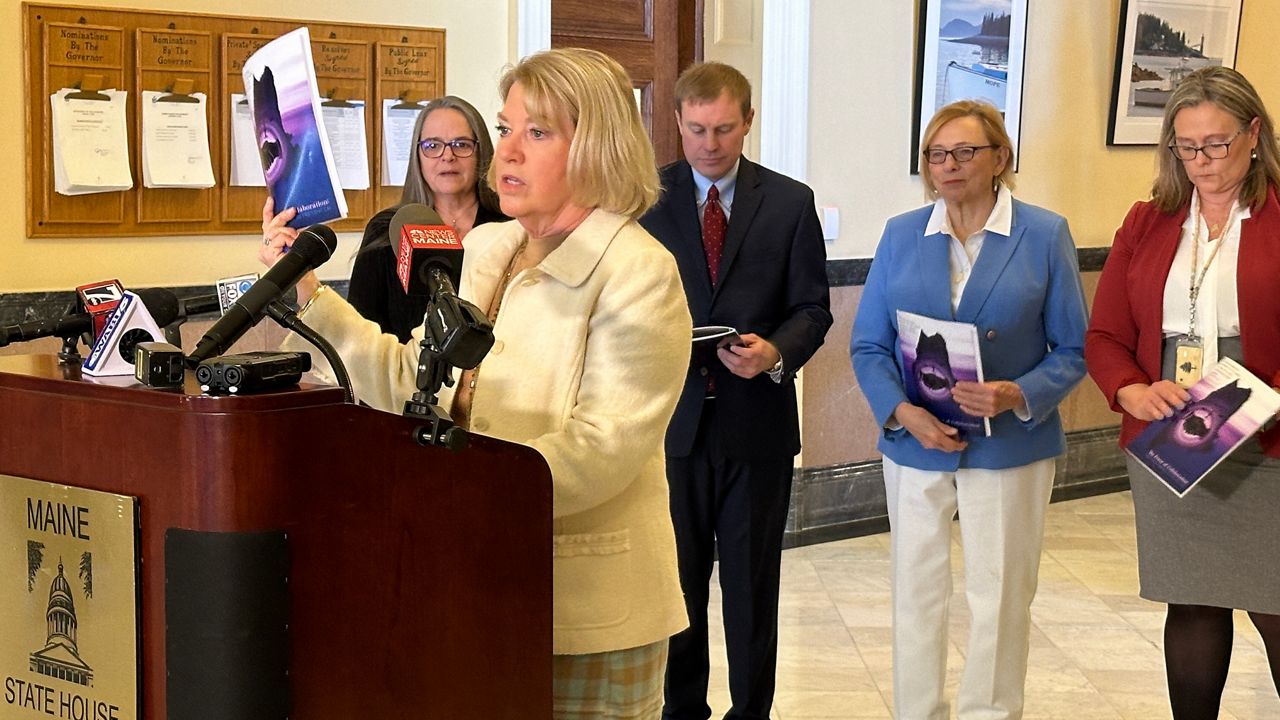Those working to prevent domestic violence homicides in Maine urged family members, friends and co-workers Wednesday to speak up if they suspect abuse, saying that most times, third parties are aware that someone may be in trouble before a tragic event.
“Following a homicide, family, friends, co-workers, and neighbors of the victim, expressed that they were aware of the threats but felt powerless to take any action that would be effective and safe,” according to the Domestic Abuse Homicide Review Panel report.
The report examined 28 domestic violence homicides over a seven-year period. From 2020 to 2022, the report found that half of all homicides were classified as domestic abuse.
Among the recommendations are a public awareness campaign that resources are available for those who want to help others; the expansion of educational programs for health care providers and the need for more programs for the elderly who may be homebound.
Attorney General Aaron Frey said more help is needed for children. The report found that 29 children under the age of 18 were impacted by the homicides studied over the seven-year period.
Of those, four were killed and 21 surviving children were home at the time of the homicide. All of them lost at least one parent or primary caregiver “due to homicide, incarceration or suicide.”
“Access to trauma therapy for children who’ve experienced domestic abuse and services for those survivors who are experiencing co-occurring substance use disorder and domestic abuse, it is critical that those services be invested in, be brought online, be available,” Frey said during a State House press conference.
Francine Stark, executive director of the Maine Coalition to End Domestic Violence, said the over the last year, domestic violence resource centers helped more than 15,000 people — an all-time high.
More than 2,000 of those were people who called to see what they could do to help someone else.
As a member of the panel, she said they discovered that firearms accounted for the most deaths (17 victims), substance use occurred in half of the homicides and 30% of the perpetrators had previously abused intimate partners.
“Domestic violence homicide is nearly always the culmination of years of coercive, controlling behavior that the abusive person has used to get what they want,” she said.
Gov. Janet Mills shared her own experience with domestic violence, recalling a former partner who held a gun to her head years ago, prompting her to leave the abusive relationship.
She went on to graduate from law school, become a district attorney, state legislator and attorney general, and finally governor.
“I will never forget that night and I will always know that I was one of the lucky ones,” she said. “Many others have not been so lucky. It is one of the reasons why I first entered public service as an assistant attorney general prosecuting homicides and other major crimes.”
She said her administration has passed laws to protect victims’ financial resources, created new crimes to elevate the punishment for domestic violence and extended the statute of limitations from eight years to 20 years.
Deputy Attorney General Lisa Marchese, co-chairwoman of the panel, said improvements have been made in the system used to take firearms from domestic violence offenders.
She said the results of those types of changes are hard to quantify.
“We’ll never know how many homicides we prevent,” she said. “I like to believe over the years we’ve kept the numbers from increasing and there’s far more education than ever before.”
If you or someone you know needs help, call 1-866-834-4357, a 24-hour, confidential helpline.



